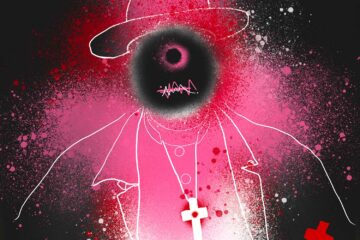Overview: In this solo episode (ep 146), Adam Williams gives into the intruding thoughts that came to him during meditation. Thoughts on God, being “good/bad” at meditation, vulnerability and connecting with each other through sharing what we’ve got to share.
Also on Apple, Spotify, Pandora, Stitcher, YouTube, Google and other players.
EP 146 SHOW NOTES, LINKS & TRANSCRIPT
Episode References
The Artist’s Way (book), Julia Cameron
We Are Chaffee: Looking Upstream (podcast)
Connect with Adam Williams
Humanitou on Instagram: @humanitou
About Adam
Artwork
Podcast cover art: Adam Williams
Music
“Old Rope” by Joe Johnson | joejohnsonsings.com
Adam Williams: Welcome to the Humanitou podcast. I’m Adam Williams.
[Intro music, guitar instrumental]
I was trying to meditate this morning as I do, well, when I’m really on it, every morning, and I kept having thoughts and thinking through a number of things. And it’s just one of those times where the thoughts just won’t stop, which, you know, that’s, that happens. Um, that happens with meditation.
It’s part of, well, it is the point that we become aware of those thoughts. Sometimes we’re able to quiet them for some brief moments at a time and sometimes not. And I was talking about this with a guest for the other podcast that I host, which is all conversational based. It’s always me and someone sharing their stories, their insights. And so this was for the We Are Chaffee: Looking Upstream podcast that I host in Chaffee County, Colorado.
And there was a lot of conversation around spirituality. This man has written a book on spirituality, on inner peace, and in that book, he refers to God a lot. And so I openly shared with him that had someone given me a book like that with the word name, God, on so many pages throughout the whole book, only six or seven years ago, had somebody put that book in my hands and said, “Here, I’d like for you to read this,” I almost certainly would’ve said, no thanks. Not gonna do it.
That’s a fraught, complicated area for me. It goes back to childhood and having been forced to go to church once, twice a week for the first 18 years of my life. So we talked a lot about God and spirituality. As I shared with him, I’ve come to a different place and a different understanding on this. I’ve been meditating for five or six years. I’ve engaged in some practices and some learning and some self-exploration, and I have a very different take on it now.
(02:30): In fact, probably that five or six years ago was when I encountered Julia Cameron’s book, The Artist’s Way. And she likewise uses God. By the way, both authors, Julia and Eric, the man I talked with yesterday for the other podcast, they both make room for other names, other perspectives and feelings on it. So we have the Divine, the Source, the Universe, all the ones that you probably already have heard of, or maybe use yourself, all the euphemisms.
And one that I really liked from Julia Cameron, she turns the name God into an acronym, Good Orderly Direction, referring to the flow of the universe, of the universal, that energy. And that made it palatable to me to be able to make use of her book, which I’m really glad I did. It’s opened up a lot of of things for me, including the creation of Humanitou.
(03:32): Reading that book, and it’s a self-help book, there’s a self-guided exploration in there, and it coincided with the creation several years ago now of Humanitou. And ultimately the Humanitou podcast, which I guess, coming to think of it, factors into my doing this other podcast, Looking Upstream. So a lot has come out of that for me by being open to that word, God, and taking it with a different lens, and then expanding my openness to it.
So I was talking with Eric yesterday about all of this stuff, and we were talking about meditation and, um, you know, I’m remembering <laugh> I asked him how he came to all of this. For me, it’s as a grown man, especially, you know, around the time I was hitting 40 to to really start with some of these practices, and engaging myself and humanity in this way.
(04:37): And with him, I asked, “Well, what was your upbringing? Was church and religion, and you know, did your parents take you to church every Sunday? Did they have you getting on your knees to pray every night before bed?”
And I asked that specific question because I still have a memory from, I mean, it could have been 40 or more years ago as a little child, my parents would do that with me every time at bedtime, every night, go in, get on knees, kneeling at my bed, elbows up on my mattress, hands folded or put together, or however I did it, probably leaning my head on my hands, and I would silently, softly mumble a prayer.
And eventually there was a night where one of my parents must have caught a hint of what I said, I must have made it audible enough. And they asked me how I started my prayer, “What did you say?” I said, “Dear dead God.” That’s how I started my prayers every night, “Dear dead God.” It was with such earnestness.
And that cracks me up. And it’s the only memory I have of that these 40 years later. I have no idea any of the things I thought were important at that age to pray for. Probably the stuff I thought I should pray for. I don’t know. Thank you for mommy, thank you for daddy, whatever, But … “Dear dead God.”
(06:01): And now here I am having these conversations with people for public consumption about God, what it means, how it’s defined, my recent enough aversion to it. And I can’t say that I’m still a hundred percent there with it. Like, I need those euphemisms because to say the name God has too much of a very specific and direct connection to other things, like being forced to go to church once or twice a week for nearly two decades.
But meditation is one of my spiritual practices that I come back to. So is art, for that matter. So is podcasting. It shows up in all kinds of ways. It’s about the energy. I think as Eric in this conversation yesterday described it, you know, spirituality in his mind is the alignment with that universal energy, and I would say with our purpose.
So even when we sit to meditate or however you go about it, and all those thoughts are intruding, I’ve heard people describe it as, well, I’m no good at it, I can’t quiet my thoughts. Well, none of us do. And that’s part of the point, is that when we meditate, we are becoming much more aware of those.
Another person I’d had a conversation with on that other podcast is a practicing Buddhist, and she had a great take on this. She says, for those people who think they’re doing it so badly, so wrongly, as if you really could be bad or wrong at it, we’re all just human doing the practice. But for those who feel the intrusion of thoughts so frequently and see that in a negative light, feeling like, “Oh, I’m failing at this thing,” it’s actually a sign of how effective you are in that practice.
Because the point is consciousness, it’s awareness. With practice, we get more and more aware and do a little bit, I don’t wanna say better, because it’s not about good, bad, better, worse, but we become much more attuned to when our thoughts are intruding and taking over.
(08:21): The way the meditative practice works is to be aware of the thoughts, which of course are gonna come. That’s what happens. That’s how our brains function. You recognize them, but instead of diving into them and going down a rabbit hole, we set them on a shelf, we set them to the side and say, I’ll deal with you later.
And we keep coming back to that ease and calm and breath. This morning was more of a challenge, more of a struggle for me. And, uh, all of these thoughts that were coming in. So I decided to turn on the recorder, turn on the mic and just share this. And for anybody else out there who’s uncertain about meditation, this is how it works. And a lot of times, creativity, something comes about for me, whether I’m going to write, speak on the mic like this, make art.
(09:10): When we create that space, just take some breaths, and it creates space and more ease in the body and it opens up ideas. Maybe that’s for your work. Maybe it’s as a parent or as, whatever.
I told Eric yesterday before we got started in our podcast conversation, that I feel compelled to share. And I don’t know why. And sometimes I wonder why. But ultimately, I think the answer I keep coming back to is, that to share things like I’m doing right here in this moment, I don’t need to know why.
And whoever needs to hear, whoever relates to this benefits from it, that that’s who, that’s who comes to it, that’s who benefits from it. There is a ripple effect of positive because of what we all share. I wish more people would, I wish more people had the confidence or the courage and would allow themselves to be vulnerable and do that.
(10:04): And so I think by sharing part of this is a modeling of it. This is vulnerable. Every time I get on the mic, every time I publish something, every time I photograph somebody and put it out in public, every time I make art and put it in a show, it’s all vulnerable to be a human.
The more we engage with that, the more the opportunity for us to connect. I tend to visualize things a lot, involuntarily even. And with this idea of vulnerability, I’ve come to visualize these sort of crossroads on a map. For some reason, I have an aerial view of it. These two roads out in the middle of nowhere, some flat, wild, country, rural intersection.
When one of us becomes vulnerable and we post a flag in the ground, a sign, we shoot up a flare into the night, whatever, I feel like it creates an opportunity for others to say, from wherever you are, I’m gonna drive my road that way.
Because where we meet and where we decide to share in our own stories, in our own perspectives, in our own questions, I think questions in life are ultimately more important than deciding we have answers. I don’t know who the hell has any real answers. I know a lot of people offer them. I’m interested in the questions.
And when we get soft and vulnerable and open and trusting of others and compassionate as listeners to allow space for that person to be vulnerable, we have an opportunity for connection.
(11:37): So that’s where my meditation this morning took me. I might have, quote, failed at meditating in terms of setting aside all the thoughts. But now all these thoughts are recorded, they’re shared, and I hope it’s doing some sort of good for you today.
I’m Adam Williams, and this is the Humanitou podcast. Thanks for listening and for those of you who are sharing it, I appreciate that, too. There’s always more – now, several years more of blog posts, art, podcasts, solo and with guests – at humanitou.com.
Thanks for listening.
[Outro music, guitar instrumental]
Photo by Marcus Ganahl


